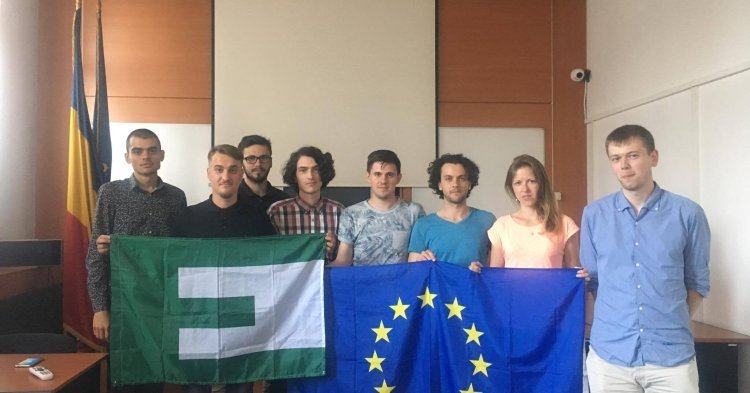The why
The last few years on the old continent have been dominated by a surge of hate-filled populism. People reacted to the supposed waves of Middle East-born immigrants and refugees, to the failing economic system and to the complex political environment of democracy by adorning themselves with a simplistic form of nationalism. Old antagonisms were revived and others were stoked.
At the same time, in Romania and all over Europe, some politicians enriched their discourse by bundling together declarations of “patriotism” and “radical change”, even if more often than not these were directed outwards, to oppose a certain element or even enemy, rather than toward the betterment of the individuals and of the country. Now, the trend seems to finally diminish and even reverse, with the prophets of hate defeated and pushed back into anonymity.
One of the prime targets of the past paradigm has been the legal, financial and political construct that we call the European Union. Regulatory, foreign and far away, especially for border countries such as Romania, the EU was an easy target for populists in need of an all-powerful “enemy” against whom the huddled masses supposedly needed protection.
The attack on the EU came in many forms. For some, the EU represents a barrier to the development of the country, although every study shows otherwise. Others held that the Union is a mechanism through which shady elites rob people of their sovereignty, not to mention corrupt the purity of the fatherland by allowing disease-spreading, non-Christian, non-white immigrants to barge in.
Except that is entirely false.
The EU is the pinnacle of compromise democracy. Its functioning is complex, made out of webs of institutions, agencies and administrative practices that require an army of specialists to navigate. Defending it is therefore more of a task than attacking it. Imagine a pro-European bus, the counterpart to the infamous “we give the EU 350 million pounds weekly” bus that the Leave campaign used in the UK. How would it have looked like, covered in the articles of the Treaty of Maastricht or in statistics showing the rise in the quality of life of EU member states?
The truth is that the EU is the reason why our lives are better in many, sometimes incremental, ways. As a citizen of one of the most recent members (2007), I have seen roads, schools and hospitals, not to mention businesses, funded and supported with expertise by the EU. For all their wrongs, Romanian politicians did plaster the EU flag on every institution, to the point in which it is virtually impossible to walk the streets of a Romanian city and not see the 12 stars on the blue background. Whether or not they did it in order to leech off of EU legitimacy is another matter.
The EU increased the quality of democracy in Romania. In order to be granted membership, rampant corruption was curtailed and transparency was made standard. Empowered and supported by the EU, journalists, civil society activists and prosecutors rose up to challenge the clientelistic power networks that dominated Romanian society.
Examples of efficient government followed, making life better in every way, from the quality of food and tap water to the fiscal behavior of politicians. With the EU under attack, the corrupt elements within Romanian society started fighting back.
The how
The enemies of the EU do not use rational arguments – failing evidently when they do – but emotional ones. So let us address that head on. We will not appeal to the easy notions of brotherhood, love, understanding, peace and prosperity for all. Instead, let us face reality. Romania is a small country, with a fragile economy and a minuscule army. Its population is old, its young uninspiring and its innovative capacities as low grounded as its educational system.
As for infrastructure, the situation is frightening. Roads decay after a year. Doctors make pennies and party-endorsed paper-pushers go home with millions. The country most visited by the Romanians is Bulgaria and most people from rural Romania have never seen a black person or an Asian, except for TV. Carts are still a common sight on rural roads and 90% of Romanians still believe that the state should provide them with a job.
The EU is the answer to all of these. The only requirement is that it should do more. Sovereign states are products of the 1648 peace of Westphalia, and are as old as the religious disputes that it settled. We need a Union not only to better our lives, but to stay relevant economically and politically.
Our loyalties lay in concentric circles, going from neighbourhoods to continents, a process of identification which we base on similarities and differences. In the past, we looked from country to country. It is time to look at the EU as our country, our continent, our common home, a beacon of liberalism and human values, together with innovation, economic performance and democracy.
We need to change the paradigm. To the statement “Europe should be united”, change the question from why to why not. More things bring us together than those that separate us. Aside from the general desire for brotherhood and community, we need each other in a selfish, self-involved way. My welfare depends on that of Germans, French, Italians and every European out there.
For that reason, we need a dedicated group of individuals who expressly look to increase pro-European and pro-federalisation feelings within Romania through debates, articles, events, visits, lectures and so on.
The who
We all know who attacks the EU, who gives into the affective passions and forgets reason, who points the finger at the stranger and attributes all the blame to him, who protests without arguments against every act of the Commission or the policies of the Parliament.
But who is to defend the Union?
Should it not be us? Should it not be the young, who have not known war or conflict, who have lived under governments that embrace the market economy and that look after the citizens through social policies? Should it not be us, the educated, the informed, the well-read and the globally aware? Should we not be the first to man the barricades and make a better future?
We certainly think so.


Follow the comments: |
|
